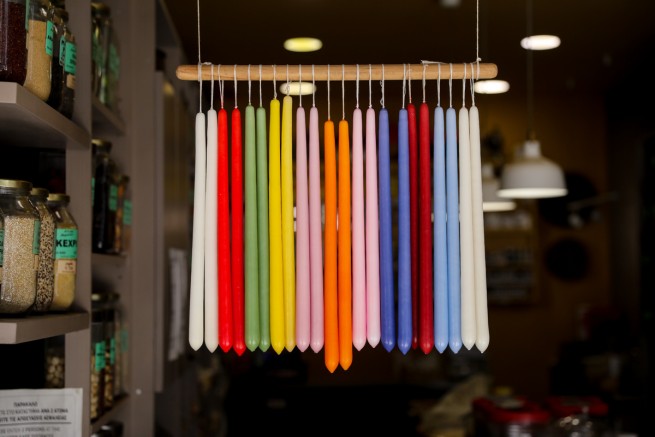What are they, modern women, and how have they changed over the past decade? This was told by a Gallup survey, whose employees talked with ladies from 150 countries.
As it turned out, over the past 10 years, women have become more sad and angry, and more prone to stress than the strong half of humanity. air force analyzed the data Gallup World Poll for the past decade as part of the “100 Women” project.
Both men and women spoke about negative emotions during the previous day in 2012 – approximately the same percentage. They mentioned anxiety, anger, sadness. But nine years later, women confidently outperformed men by as much as six percentage points. And this is on average. In Cambodia, for example, the gap is 17 points, while in India, Pakistan and Morocco it is 12 percentage points each. It is possible that the pandemic is to blame – it has exacerbated poverty and stalled progress in education and employment for women.
Experts believe that the coronavirus has set back the emancipation of women by a quarter of a century. Gallup surveys more than 120,000 people annually, and analysis of its data shows that since 2012, more women than men report sadness and anxiety, although, however, in men, the indicators are steadily increasing and tend to balance with the data of the weaker sex. .
But when the questions are about stress and anger, the ladies quickly take the lead. Whereas in 2012 men and women reported anger and stress at the same level, nine years later women are six percentage points angrier than men and much more stressed. According to experts, this gap has increased significantly during the coronavirus pandemic.
US psychotherapist Sarah Harmon is not at all surprised by these results. At the beginning of 2021, she took her clients out into the field so that they could shout to their heart’s content and thus relieve stress. “We make it clear what happened, why it’s important, and what’s next.” The results were simply amazing. A year later, she again took the clients out into the field to shout. A reporter from her online mom group told about this original initiative, and suddenly reporters from all over the world began calling her – her cry from the heart method became incredibly popular. Sarah Harmon believes that she was able to capture and understand the feelings of women around the world – strong dissatisfaction due to the fact that the burden of the pandemic disproportionately fell on their shoulders.
A 2020 survey of 5,000 parents in England by the Institute for Financial Studies found that mothers took on far more household chores than fathers during the coronavirus lockdown. As a result, many even had to reduce the working day, having a highly paid job.
However, experts are interested in another important question: how to explain the wider gap between different countries – for example, 12 percentage points in India and Pakistan? Psychiatrist Lakshmi Vijayakumar argues that this is the result of tensions that arise as more women get educated and employed and become economically independent. There is a much greater difference in the level of anger between men and women in India, Lakshmi Vijayakumar says:
“At the same time, they are bound hand and foot by archaic, patriarchal systems and culture. The dissonance between the patriarchal system at home and emancipation at work or in society undoubtedly causes irritation and anger. You see how the men are already resting, going to the teahouse, quietly smoking “And the women rush to the bus stop or the train station. They are already thinking about what to cook.”
She explains that it’s also because it used to be inappropriate for women to say they were angry or stressed, but that’s changing. Now they have more opportunities to express their emotions, so there is more anger.
Every year, the BBC compiles the Women’s 100 list, which includes the most inspiring and influential women from around the world. 2022 also celebrates the progress made since the first list was made 10 years ago, which is why the BBC commissioned Savanta ComRes to ask women from 15 countries to compare this year with 2012. And here are the results:
- At least half of the women surveyed in every country except the US and Pakistan found it easier for women to negotiate consent to intimate relationships with a romantic partner.
- In most countries, at least two-thirds of the women surveyed said social media has had a positive impact on their lives, although in the US and UK the figure is less than 50%.
- In 12 out of 15 countries, 40% or more of women surveyed say that freedom of expression is the area in which their lives have progressed the most in the last 10 years.
- 46% of those surveyed in the US believe that it has become more difficult for women to access medically safe abortion than 10 years ago.
American women report higher levels of stress and sadness than men. This also applies to other countries. In Brazil, Uruguay, Peru, Cyprus and Greece, far more women than men reported being stressed. In Brazil, almost six in 10 women said they were stressed for much of the previous day, compared with just under four in 10 men. Ginette Ascona of UN Women says:
“Rage and anger are necessary. Sometimes it is necessary to shake everything around, to make people pay attention to you and listen.”
Gallup polls more than 120,000 people annually in more than 150 countries and regions, representing approximately 98% of the world’s adult population, using randomly selected nationally representative samples. Surveys are conducted in person or by telephone. Margins of error for results vary by country and issue. If the sample size is smaller, for example, if the response set is divided by gender, the error will be higher. Full 2021 Gallup poll data sheets can be downloaded here.
Savanta ComRes surveyed 15,723 women aged 18+ online in Egypt, Kenya, Nigeria, Mexico, USA, Brazil, China, India, Indonesia, Pakistan, Saudi Arabia, Russia, Turkey, UK and Ukraine between October 17 and November 16 2022. The data was weighted to ensure that women in each country are representative by age and region. The margin of error for the results for each country is +/- 3. Detailed results can be find here.







More Stories
Real wages in Greece fell by 30%
ELSTAT: inflation increased by another 3.2% in March
“Disappointing” second poorest EU country